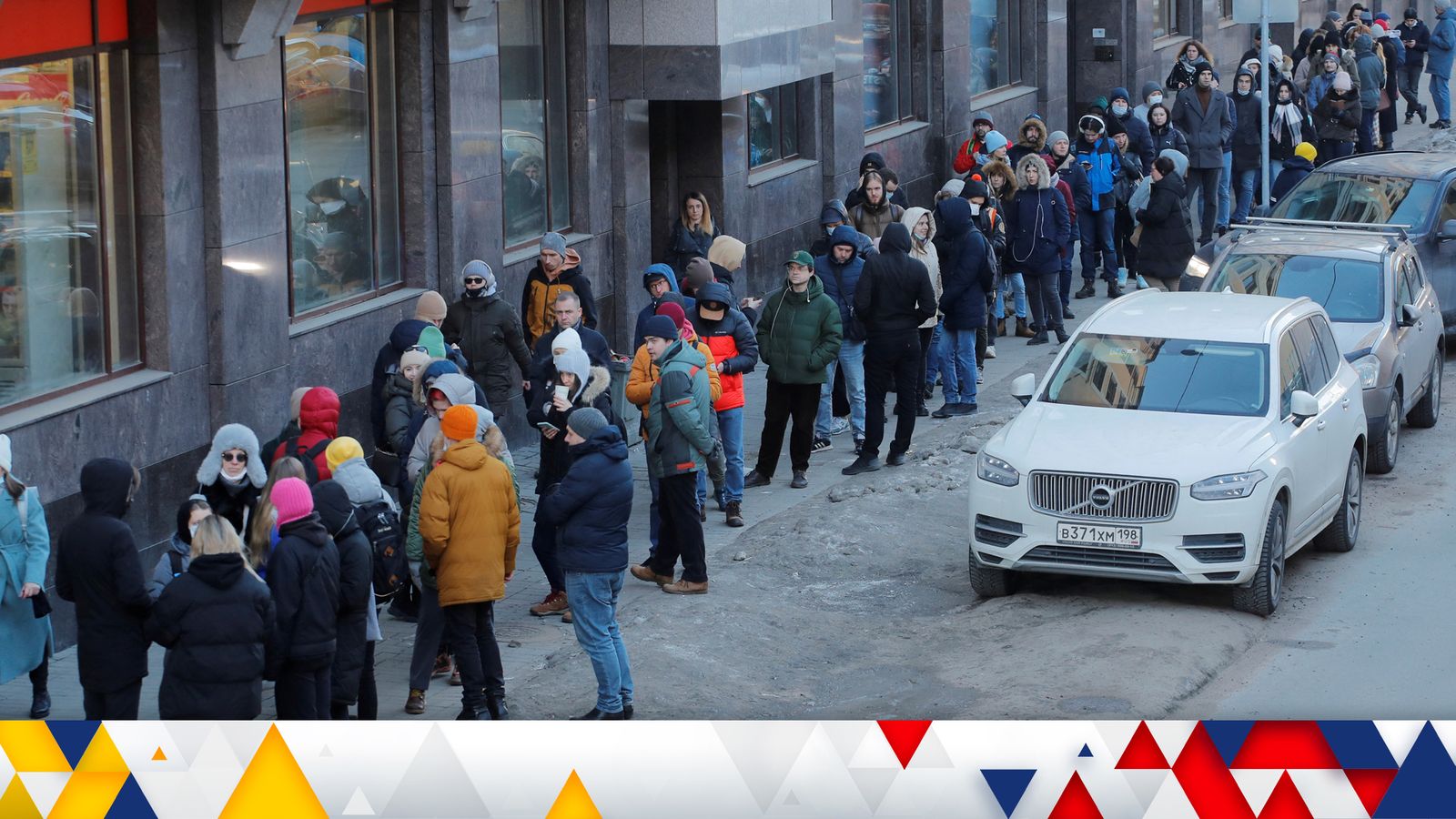The value of Russia’s currency has plunged to an all-time low after Western nations imposed new sanctions on the country for its invasion of Ukraine.
The rouble was down nearly 30% against the US dollar at one point, dropping as low as 119 per dollar in early Asian trading, passing its previous low of 90 roubles per dollar.
It comes after tough financial sanctions announced by Western nations, including the UK, European countries, the US, and joined by Japan overnight.
These include blocking some Russian banks from SWIFT – a system which allows around 11,000 of the world’s financial institutions to communicate and authorise payments.
Other restrictions are aimed at the reserves held by Russia’s central bank, with the intention of preventing any support for the struggling rouble.
Photos showed Russians queueing to withdraw money in some cities, worried about cash shortages, despite the Russian Central Bank calling for calm.
The central bank said people’s bank cards were working normally and their money could be accessed any time.
Ukraine invasion: Day four of Russia’s advance in maps
Ukraine invasion: The stories behind those forced to flee Putin’s war
Ukraine invasion: Putin has raised the abhorrent spectre of a nuclear option – could it be a sign of desperation?
It announced a number of measures in response to the growing crisis, including resuming buying gold on the domestic market, and increasing the range of securities that can be used as collateral for loans.
Subscribe to the Daily podcast on Apple Podcasts, Google Podcasts, Spotify, Spreaker
But some analysts said Russian banks have only limited time before they face very serious problems.
Jeffrey Halley, Asia-based senior market analyst at OANDA, told Reuters: “A bank run has already started in Russia over the weekend… and inflation will immediately spike massively, and the Russian banking system is likely to be in trouble.”
Analysts at Rabobank said the sanctions on currency reserves took away what little support the rouble had, predicting a “complete collapse” in the currency today.
Ray Attrill, head of FX strategy at National Australia Bank, also said the rouble’s collapse “appears imminent”, but others were more cautious, with Peter Kinsella, London-based global head of FX strategy at UBP only going as far as saying he expected the currency to “weaken quite severely”.
Please use Chrome browser for a more accessible video player
In other developments:
• Russian President Vladimir Putin ordered that Russia’s nuclear deterrent forces be put on high alert, blaming “aggressive statements” by Western countries
• Blasts were heard in Ukraine’s capital Kyiv and its second-largest city Kharkiv overnight. Kyiv’s mayor said the city was surrounded and there was now no way out for civilians
• The UN’s two major bodies – the 193-nation General Assembly and the 15-member Security Council – will hold separate meetings later today to discuss the invasion
Please use Chrome browser for a more accessible video player
• Missiles hit a radioactive waste disposal site in Kyiv but there were no reports of damage or the release of radioactive material
• Reports in a number of news outlets, including Kyiv Independent, said that paratroopers from Russia’s ally Belarus could soon be deployed to fight against Ukraine
• Belarus approved a new constitution in a referendum which would ditch its non-nuclear status, possibly paving the way for nuclear weapons on Belarusian soil for the first time since the country gave them up after the fall of the Soviet Union. The West has said it does not accept the referendum result
• The European Union said it would close its airspace to Russian airlines, as well as funding weapons for Ukraine






















